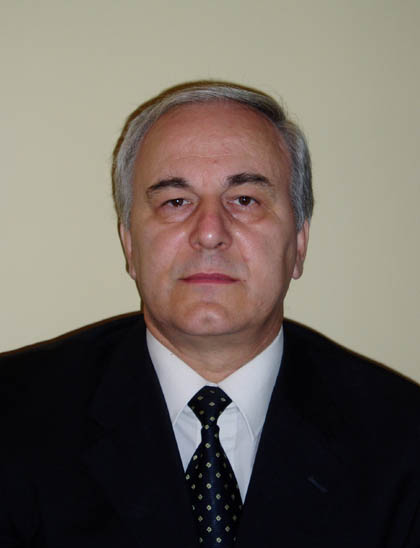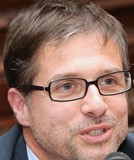Studying at the University of Verona
Here you can find information on the organisational aspects of the Programme, lecture timetables, learning activities and useful contact details for your time at the University, from enrolment to graduation.
Academic calendar
The academic calendar shows the deadlines and scheduled events that are relevant to students, teaching and technical-administrative staff of the University. Public holidays and University closures are also indicated. The academic year normally begins on 1 October each year and ends on 30 September of the following year.
Course calendar
The Academic Calendar sets out the degree programme lecture and exam timetables, as well as the relevant university closure dates..
| Period | From | To |
|---|---|---|
| Sem. I Trento | Sep 17, 2018 | Dec 21, 2018 |
| Sem. 1A | Sep 24, 2018 | Nov 10, 2018 |
| Sem. 1B | Nov 19, 2018 | Jan 12, 2019 |
| Sem. II Trento | Feb 11, 2019 | May 31, 2019 |
| Sem. 2A | Feb 18, 2019 | Mar 30, 2019 |
| Sem. 2B | Apr 8, 2019 | Jun 1, 2019 |
| Session | From | To |
|---|---|---|
| Sessione d'esame straordinaria invernale Trento | Dec 3, 2018 | Dec 21, 2018 |
| Sessione d'esame invernale Trento | Jan 7, 2019 | Feb 9, 2019 |
| Sessione d'esame invernale | Jan 14, 2019 | Feb 16, 2019 |
| Sessione d'esame estiva (gli esami sono sospesi durante la sessione di laurea) | Jun 3, 2019 | Jul 27, 2019 |
| Sessione d'esame autunnale Trento | Aug 19, 2019 | Sep 14, 2019 |
| Sessione d'esame autunnale | Aug 26, 2019 | Sep 21, 2019 |
| Session | From | To |
|---|---|---|
| Sessione di laurea estiva | Jul 8, 2019 | Jul 13, 2019 |
| Sessione di laurea autunnale | Nov 4, 2019 | Nov 9, 2019 |
| Sessione di laurea invernale | Mar 30, 2020 | Apr 4, 2020 |
| Period | From | To |
|---|---|---|
| Festa di Ognissanti | Nov 1, 2018 | Nov 1, 2018 |
| Sospensione dell'attività didattica | Nov 2, 2018 | Nov 3, 2018 |
| Festa dell’Immacolata | Dec 8, 2018 | Dec 8, 2018 |
| Vacanze di Natale | Dec 24, 2018 | Jan 5, 2019 |
| Vacanze di Pasqua | Apr 19, 2019 | Apr 23, 2019 |
| Sospensione attività didattica | Apr 24, 2019 | Apr 27, 2019 |
| Festa della liberazione | Apr 25, 2019 | Apr 25, 2019 |
| Festa del lavoro | May 1, 2019 | May 1, 2019 |
| Festa del Santo Patrono | May 21, 2019 | May 21, 2019 |
| Festa della Repubblica | Jun 2, 2019 | Jun 2, 2019 |
| Vacanze Estive | Aug 12, 2019 | Aug 17, 2019 |
Exam calendar
Exam dates and rounds are managed by the relevant Culture and Civilisation Teaching and Student Services Unit.
To view all the exam sessions available, please use the Exam dashboard on ESSE3.
If you forgot your login details or have problems logging in, please contact the relevant IT HelpDesk, or check the login details recovery web page.
Should you have any doubts or questions, please check the Enrollment FAQs
Academic staff

Bassetti Massimiliano
 massimiliano.bassetti@univr.it
massimiliano.bassetti@univr.it
 045802 8376
045802 8376
 giovanni.ciappelli@univr.it
giovanni.ciappelli@univr.it
 gianmaria.varanini@univr.it
gianmaria.varanini@univr.it
Study Plan
The Study Plan includes all modules, teaching and learning activities that each student will need to undertake during their time at the University.
Please select your Study Plan based on your enrollment year.
1° Year
| Modules | Credits | TAF | SSD |
|---|
Medieval History, History of Christianity and Churches
Early Modern History I - LM (Historical Anthropology)
Contemporary History I - LM
History of Political Institutions II
History of Political Thought
History of Science and Technology - LM
Medieval Latin Literature II
Digital tools for historical research
2° Year activated in the A.Y. 2019/2020
| Modules | Credits | TAF | SSD |
|---|
| Modules | Credits | TAF | SSD |
|---|
Medieval History, History of Christianity and Churches
Early Modern History I - LM (Historical Anthropology)
Contemporary History I - LM
History of Political Institutions II
History of Political Thought
History of Science and Technology - LM
Medieval Latin Literature II
Digital tools for historical research
| Modules | Credits | TAF | SSD |
|---|
Legend | Type of training activity (TTA)
TAF (Type of Educational Activity) All courses and activities are classified into different types of educational activities, indicated by a letter.
Contemporary History I - LM [Sede VR] (2018/2019)
Teaching code
4S001218
Teacher
Coordinator
Credits
6
Also offered in courses:
- Contemporary History I - LM [Sede VR] of the course Master's degree in Arts (interuniversity)
- History of late modern Europe (m) of the course Master’s degree in Tradition and Interpretation of Literary Texts
Language
Italian
Scientific Disciplinary Sector (SSD)
M-STO/04 - CONTEMPORARY HISTORY
Period
Sem. 2A, Sem. 2B
Learning outcomes
Analysis and understanding of complex historical processes over time (including the analysis of shorter historical times in a long-term perspective) and in space (by linking the national history with the European and international ones), capturing the complexity and articulation of historical events, while being able to identify the most significant causal nodes.
Program
Europe and the United States in the history of the twentieth century
The course aims to provide an in-depth knowledge of the European history of the period 1900-1970 and of the history of political, diplomatic and cultural relations between Europe and the United States in the indicated period. There are two crucial steps to understand the evolution of these relationships in the first half of the twentieth century: the Great War and the Thirties that registrer the rise of two American presidents destined to play a central role in the world political scene as Woodrow Wilson and Franklin D. Roosevelt.
Particular attention will be devoted to the period between the two wars and to the birth and evolution of totalitarian regimes that is presented in a comparative and transnational perspective, from the point of view of political, cultural and intellectual history.
The central part of the course will be devoted to the analysis of the fundamental characteristics of totalitarian regimes, to the cultural and diplomatic relations put in place in relation to the American world, to the history of fascism in a transnational perspective, to the phenomenon of intellectual and political exile, to the circulation of ideas between Europe and the United States in the interwar years. The last part of the course will focus on the evolution of political and diplomatic relations between Europe after 1945, on the birth of a new world order and on the beginning of the cold war, on economic development in the Golden Age years of world capitalism.
At the end of the course the student must be able to reach a high level of knowledge on: a) the periodization of the historical phases considered, b) the events that characterize the historical events examined in the period considered, c) the different historical processes that totalitarianisms have generated, d) the historiographic interpretations related to these processes.
Syllabus
The course structure revolves around three thematic blocks.
From the Great War to totalitarianism
1. The Great War and United States.
2. The post-war period and the crisis of liberal regimes in Europe.
3. Wilsonism.
4. Origins and characters of the totalitarianism.
5. Italian fascism: origins and transformations.
6. The Weimar Republic and the birth of Nazism.
7. The crisis of 1929.
The thirties
1. The New Deal: a global perspective.
2. The crisis of Europe in the interwar years.
3. Transatlantic fascism.
4. The United States and the "parallel diplomacy" of fascism.
5. Exchanges and circulations of ideas between Europe and the United States.
6. The experience of exile.
7. United States and World War II.
After 1945
1. The crisis of diplomatic balance and the birth of a new world order.
2. The reconstruction of Europe.
3. The origins of the Cold War.
4. The Cold War and cultural changes between Europe and the United States.
5. The Americanization of Europe.
Bibliography
1. A book chosen from:
S. Colarizi, Novecento d’Europa. L’illusione, l’odio, la speranza, l’incertezza, Laterza, 2015 (con esclusione del paragrafo 12).
M. Mazower, Le ombre dell’Europa, Garzanti, 2013 (e successive edizioni).
K. Patel, Il New Deal. Una storia globale, Einaudi, 2018.
B. Steil, Il Piano Marshall. Alle origini della guerra fredda, Donzelli, 2018.
2. Two books chosen from the following:
A. Testi, Il secolo degli Stati Uniti, Il Mulino, 2017.
F. Romero, Storia della guerra fredda. L’ultimo conflitto per l’Europa, Einaudi, 2009 (e successive edizioni).
G. Borgognone, Tecnocrati del progresso. Il pensiero americano del Novecento tra capitalismo, liberalismo e democrazia, Utet, 2015.
J. W. Müller, L’enigma democrazia. Le idee politiche del Novecento, Einaudi, 2012.
D.W. Ellwood, Una sfida per la modernità. Europa e America nel lungo novecento, Carocci, 2012.
V. De Grazia, L’impero irresistibile. La società dei consumi americana alla conquista del mondo, Einaudi, 2006.
Non-attending students must add to the above bibliography the volume:
1. J. Chapoutot, Controllare e distruggere. Fascismo, nazismo e regimi autoritari in Europa (1918-1945), Einaudi, 2015.
Didactit modes
Frontal lessons, guided tour to museums and archives, projections of movies and documentaries, lessons with external guests, seminars.
The partecipants can prepare brief paper to expose in class.
Examination Methods
Assessment methods and criteria
1. Exam is based on a oral text.
2. Students must demonstrate their capacity in using historical concepts and the appropriate language. They must also demonstrate their ability in the connection between different historical processes, both national and international.
3. Questions will be based on the most important topics discussed during the lessons and suggested in the literature.
4. Method of valuation: the vote is expressed in marks from 18 to 30/30.
Type D and Type F activities
Modules not yet included
Career prospects
Module/Programme news
News for students
There you will find information, resources and services useful during your time at the University (Student’s exam record, your study plan on ESSE3, Distance Learning courses, university email account, office forms, administrative procedures, etc.). You can log into MyUnivr with your GIA login details: only in this way will you be able to receive notification of all the notices from your teachers and your secretariat via email and soon also via the Univr app.
Linguistic training CLA
Double degree
The University of Verona, through a network of agreements with foreign universities, offers international courses that enable students to gain a Double/Joint degree at the time of graduation. Indeed, students enrolled in a Double/Joint degree programme will be able to obtain both the degree of the University of Verona and the degree issued by the Partner University abroad - where they are expected to attend part of the programme -, in the time it normally takes to gain a common Master’s degree. The institutions concerned shall ensure that both degrees are recognised in the two countries.
Places on these programmes are limited, and admissions and any applicable grants are subject to applicants being selected in a specific Call for applications.
The latest Call for applications for Double/Joint Degrees at the University of Verona is available now!
Graduation
List of theses and work experience proposals
| theses proposals | Research area |
|---|---|
| Ambiti di tesi | Art & Architecture - Art & Architecture |
Student mentoring
Student login and resources
Manifesto degli studi
Manifesto degli studi del CdLM interateneo in Scienze storiche
Documents
| Title | Info File |
|---|---|
|
|
pdf, it, 466 KB, 26/02/24 |
|
|
pdf, it, 456 KB, 26/02/24 |




















